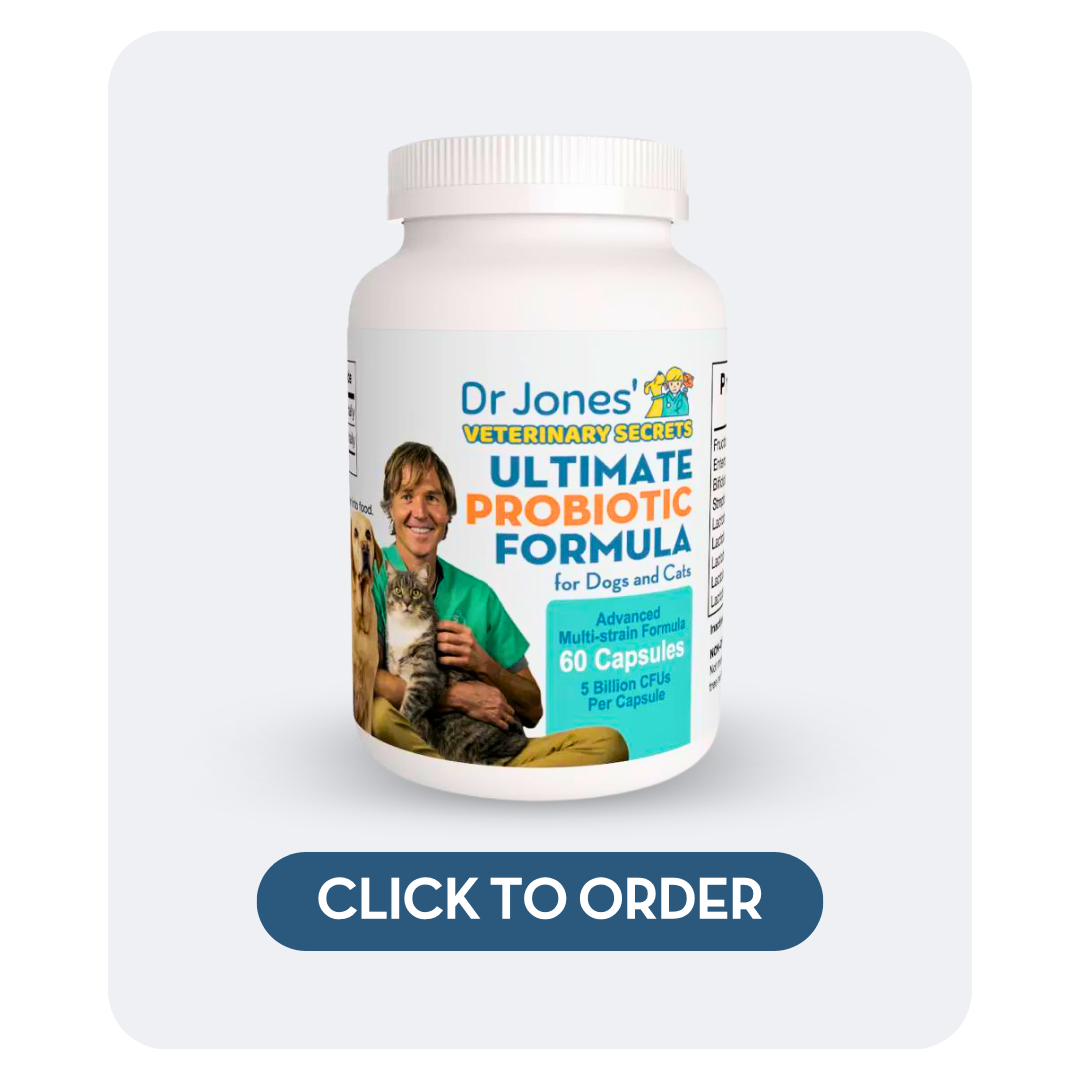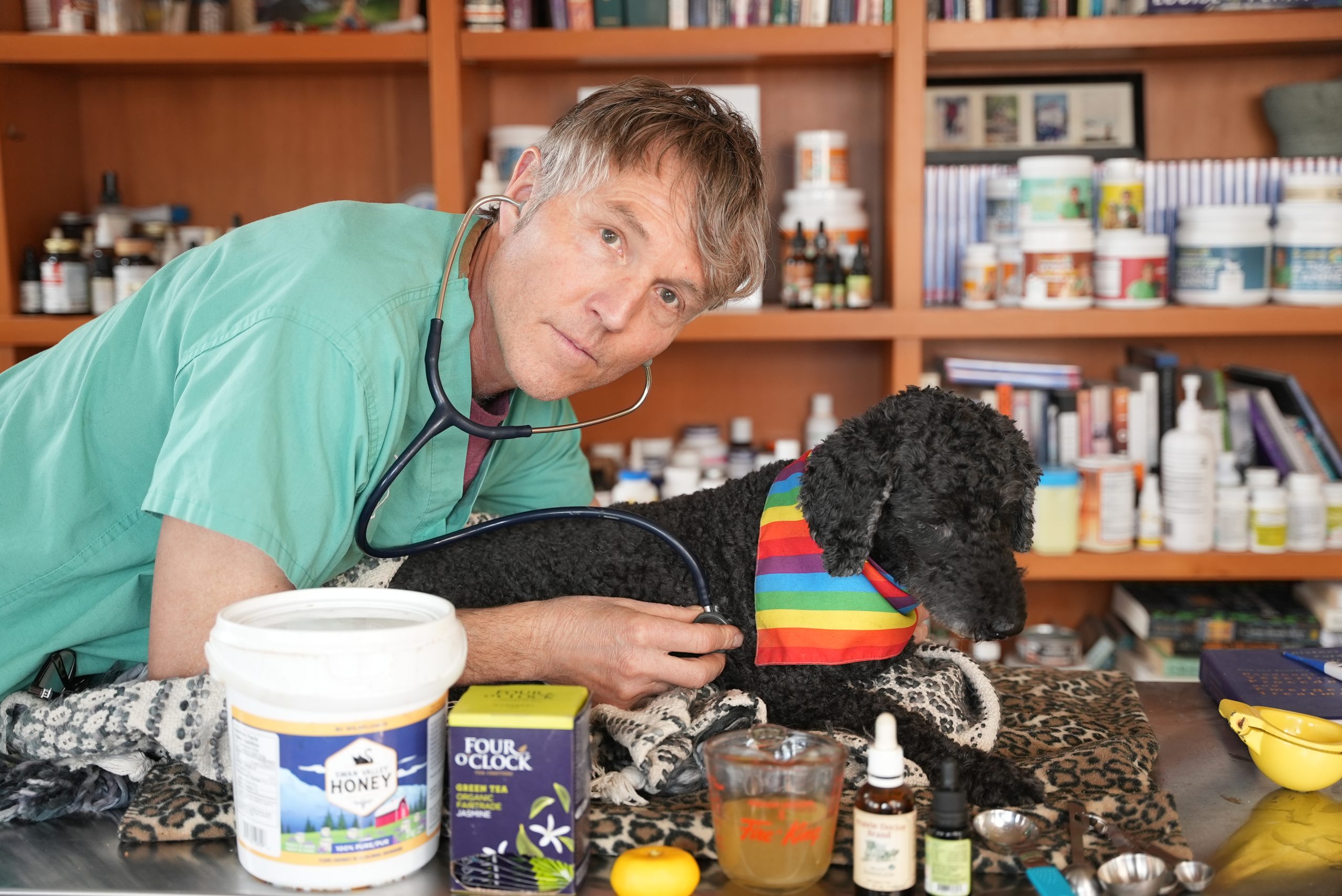Why Do Pets Get Anemia? Natural Remedies for Dogs and Cats!
![]()

Understanding Anemia in Pets
Anemia is a common condition in pets, characterized by a decrease in the number of red blood cells (RBCs) or a reduced amount of hemoglobin in the blood. Hemoglobin, which is found inside red blood cells, is responsible for carrying oxygen from the lungs to the rest of your pet’s body. When a pet is anemic, it leads to a lack of oxygen in their cells. Depending on the severity of the anemia, a variety of clinical signs can appear.
The Power of Essential Fatty Acids
If your pet is suffering from allergies, incorporating the right dose of Essential Fatty Acids into their routine can make a world of difference. These fats, particularly omega-3s, are known for their anti-inflammatory properties, which can reduce itching and discomfort caused by allergic reactions. By using them as a natural remedy, you can avoid the potential side effects of steroids while still offering your pet the relief they need.
But, it’s important to use the right form of Essential Fatty Acids to ensure proper absorption and maximum effectiveness. Getting the correct dosage is crucial to achieving the desired results.
Our Omega 3 Formula: A Holistic Alternative

I recommend Dr. Jones’ ULTIMATE Omega 3 Formula for Dogs and Cats as a great source of high-quality Essential Fatty Acids. This formula is designed to provide the optimal balance of omega-3s to support your pet’s health and help manage allergic reactions.

How and Why Dogs and Cats Get Anemia
Anemia occurs when a pet’s red blood cell count is too low or when the amount of hemoglobin in the blood is reduced. Hemoglobin is responsible for carrying oxygen throughout the body, so anemia leads to a lack of oxygen in your pet’s cells. Understanding how and why dogs and cats get anemia is crucial for recognizing the condition early and providing the right care.
How Do Dogs and Cats Get Anemia?
There are several ways in which dogs and cats can develop anemia, typically linked to issues such as blood loss, decreased red blood cell production, or the destruction of red blood cells. Here’s a breakdown:
1. Blood Loss
One of the most common causes of anemia is blood loss. When an animal loses too much blood, it doesn’t have enough red blood cells to carry oxygen. This blood loss can occur from:
-
Parasites: Fleas, ticks, hookworms, and other parasites can cause blood loss, leading to anemia. In fact, parasites are one of the leading causes of anemia in young animals.
-
Trauma: An injury that causes bleeding, whether from an accident or an external wound, can lead to anemia.
-
Internal Bleeding: Conditions like spleen tumors or gastrointestinal bleeding, such as ulcers or cancers, can result in internal bleeding and anemia.
2. Destruction of Red Blood Cells
Sometimes the body destroys its own red blood cells, causing anemia. This condition is known as hemolytic anemia and can be caused by:
-
Immune-Mediated Hemolytic Anemia (IMHA): This is a condition where the body’s immune system mistakenly attacks and destroys its own red blood cells. It can be caused by an infection, certain medications, or other underlying health conditions.
-
Infections: Certain infections, such as those caused by bacteria, viruses, or parasites (like Babesia), can trigger the destruction of red blood cells.
3. Decreased Red Blood Cell Production
In some cases, the bone marrow, which is responsible for producing red blood cells, doesn’t produce enough. This can happen due to:
-
Chronic Diseases: Conditions like kidney disease or cancer can interfere with the bone marrow’s ability to produce red blood cells.
-
Nutritional Deficiencies: A lack of certain nutrients, such as iron, vitamin B12, or folic acid, can prevent the production of healthy red blood cells.
-
Bone Marrow Disorders: Certain bone marrow diseases, such as leukemia or myelodysplastic syndromes, can cause the marrow to become less effective in producing red blood cells.
Why Do Dogs and Cats Get Anemia?
Anemia in pets doesn’t typically happen on its own—it is usually a symptom of an underlying issue. Here are some reasons why anemia can occur:
1. Parasites
Parasites such as fleas, ticks, and intestinal worms are common causes of blood loss in pets. These pests feed on the blood of your pet, and in heavy infestations, they can drain enough blood to cause anemia.
2. Immune System Disorders
When the immune system malfunctions, it can begin to attack the body’s own red blood cells. This is the case with Immune-Mediated Hemolytic Anemia (IMHA), where the immune system mistakenly targets healthy red blood cells, causing their premature destruction.
3. Chronic Illnesses
Conditions like kidney disease, liver disease, and cancer can lead to anemia. In chronic illnesses, the body may not be able to produce enough red blood cells, leading to anemia. In some cases, these illnesses also contribute to internal bleeding, which can further worsen anemia.
4. Blood Loss from Injuries or Surgery
Traumatic injuries, such as a dog being hit by a car or a cat having a surgical procedure, can lead to blood loss. If the blood loss is significant or prolonged, anemia may develop.
5. Nutritional Deficiencies
Iron, vitamin B12, and folic acid are critical for red blood cell production. If your pet’s diet lacks these essential nutrients, anemia can occur. For example, iron deficiency anemia is common, especially in pets that are on an unbalanced diet or that have absorption issues.
6. Genetic Conditions
Some breeds of dogs and cats are genetically predisposed to certain types of anemia. For instance, some dog breeds like the Cocker Spaniel, Irish Setter, and Doberman Pinscher are more prone to immune-mediated hemolytic anemia. Genetic defects can also lead to conditions like hemophilia, where blood doesn’t clot properly, contributing to anemia.
Signs of Anemia in Pets
If your pet is suffering from anemia, here are the signs to watch out for:
-
Weakness
-
General tiredness
-
Shortness of breath
-
Sleeping more than usual
-
Poor appetite
-
Dizziness
-
Fainting
-
Pale gums and paleness of the whites of the eyes (sclera)
-
Yellowing around the eyes
-
Rapid heart rate
-
Weak pulse
-
Pica (the consumption of non-food items like dirt, paper, wax, grass, ice, and hair, which may indicate iron deficiency)
If you notice any of these symptoms, it’s important to seek veterinary care right away.
What to Do if Your Pet is Anemic
If you suspect your pet has anemia, it’s essential to take immediate action. Here’s what you can do:
1. See Your Veterinarian
Anemia can be a sign of a potentially serious underlying condition. It’s crucial that your veterinarian diagnoses the cause and begins appropriate treatment right away.
2. Diet: Add Iron-Rich Foods
For anemia caused by iron deficiency, adding iron-rich foods to your pet’s diet can help. One of the best sources of iron is cooked liver. Here’s what I recommend:
-
For cats: Give one ounce of cooked liver per day.
-
For dogs: Give four ounces of cooked liver per day.
This will help boost your pet’s ability to carry oxygen in the blood.
3. Vitamins to Support Blood Health
-
B Vitamins: These are vital for the blood cells’ ability to carry oxygen. You can purchase a vitamin B complex liquid elixir at your local pharmacy. Give it twice daily.
-
Vitamin C (250–500 mg twice daily): Vitamin C helps the body absorb iron. You can include dietary sources like citrus fruits, tomatoes, broccoli, and cauliflower.
4. Blackstrap Molasses
Blackstrap molasses, also known as “pregnancy tea," is a great source of iron, B vitamins, and minerals. It’s also a gentle laxative, which can help your pet’s digestive health. Add one tablespoon of molasses to a cup of hot water and give it to your pet daily.
5. Acupressure
Some veterinarians have found success using acupressure to treat immune-related disorders. To help strengthen the immune system, apply pressure for one minute three times a day to the GV14 point—located at the base of the neck between the shoulder blades.
6. Herbal Remedies
Several herbs can help treat anemia in pets:
-
Nettle
-
Red Clover
-
Burdock Root (the most important herb of these three)
You can find these herbs at most health food stores. Give one teaspoon of the herb mixture per ten pounds of your pet’s body weight once daily.
7. Yunnan Baiyao
Yunnan Baiyao is a Chinese herb commonly used to treat bleeding. The recommended dose is half a capsule per ten pounds of body weight, three times daily.
8. Herbal Tonic for Anemia
I recommend this herbal tonic to provide important nutrients for your pet:
-
Equal parts nettle, dandelion leaf, alfalfa, and ground flax seed (or fish oil for cats).
-
Dose: One teaspoon per pound of food for dogs, and half a teaspoon daily for cats.
This tonic provides protein, vitamins C, B-complex (including B12), vitamin A, E, K, iron, potassium, calcium, magnesium, omega-3 fatty acids, and more.
9. Homeopathic Remedy: Phosphorus
Phosphorus is a common homeopathic remedy for many types of bleeding and can help with anemia. The dosage is 1–3 pellets of Phosphorus 30C twice daily for 3–5 days.
Conclusion
Anemia is a serious condition in dogs and cats, but understanding how and why it develops can help you spot it early. Whether caused by blood loss, immune system issues, or a lack of red blood cell production, anemia is typically a sign of an underlying health problem. If you notice any signs of anemia in your pet—such as weakness, pale gums, or lethargy—it’s important to consult with your veterinarian for proper diagnosis and treatment.

The Power of Essential Fatty Acids
If your pet is suffering from allergies, incorporating the right dose of Essential Fatty Acids into their routine can make a world of difference. These fats, particularly omega-3s, are known for their anti-inflammatory properties, which can reduce itching and discomfort caused by allergic reactions. By using them as a natural remedy, you can avoid the potential side effects of steroids while still offering your pet the relief they need.
But, it’s important to use the right form of Essential Fatty Acids to ensure proper absorption and maximum effectiveness. Getting the correct dosage is crucial to achieving the desired results.
Our Omega 3 Formula: A Holistic Alternative
I recommend Dr. Jones’ ULTIMATE Omega 3 Formula for Dogs and Cats as a great source of high-quality Essential Fatty Acids. This formula is designed to provide the optimal balance of omega-3s to support your pet’s health and help manage allergic reactions.











I was looking for a natural treatment for anemia in cats due to chronic kidney disease. I found this website and noticed Dr. Jones advises giving 1 oz. of liver once daily to cats with renal failure. I have read on other websites to give one piece of cooked chicken liver WEEKLY to a cat, since liver can cause a buildup of Vitamin A in the cat which is dangerous. My cat is 19-1/2 years old and acts like he is in excellent shape, which he isn’t. I’ve got to keep searching for treating anemia and kidney failure in cats.
aww sad how is it going?